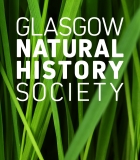Grant Information
As a result of a generous bequest made by Blodwen Lloyd Binns in 1992, funds are available to individuals and groups who make application for assistance in carrying out projects of natural history interest.
Objectives
GNHS grants from the Blodwen Lloyd Binns Bequest are focused towards supporting projects that increase understanding and public awareness of natural history topics. Preference will be given to local(=Scottish) over distant projects and those likely to generate publications (in GNHS journal or elsewhere).
Who can apply?Applications may be submitted by individuals or representatives from groups or organisations, but the applicant MUST hold current GNHS membership. Membership of a group holding GNHS membership is acceptable.
Applications from postgraduate students, academic staff or other professionals working in the field of natural history, will only be considered where projects are dissociated from their day-to-day work and/or require an additional funding source to proceed, which needs to be explicitly explained and justified.
Award LimitsThe maximum amount available for Scottish natural history projects is generally £2,000, although greater amounts may be considered for exceptional projects.
Different maximum amounts will generally apply to the following cases:- Up to £1000 for UK/overseas undergraduate student expeditions from west of Scotland universities (the maximum is for the expedition group as a whole and not for each student); to be applied for by one student from the group
- Up to £200 towards costs of undergraduate natural history research projects (in the UK or overseas); to be applied for by the student
- Up to £600 towards overseas natural history research by individuals
- Up to £300 to support postgraduate students, but only to report the results of their natural history research at an international conference; to be applied for by the student
Awards MAY support various project expenses that are directly related to projects including:
- Temporary accommodation
- Travel to project location and local transport
- Equipment and materials - On completion of the project items that are no longer used by the recipient and would be suitable for future use by GNHS members (e.g. trail cameras etc.) should be returned to the Society.
- Project preparation costs (including licences, training sessions)
- Costs of post fieldwork analysis
- Public engagement resources
Awards are NOT awarded towards salaries.
When to applyGrant applications may be submitted at any time, though awards are allocated at three set points each year as follows: applications received before 15th January are assessed in February, those received before 15th April are assessed in May; and those received by 15th August are assessed in September. Late applications missing a stated deadline will be carried forward to the subsequent grant-awarding event.
How to applyThe application form is available to download here. All sections of the form must be completed and preferably submitted in Rich Text Format (RTF). The form includes additional guidance for applicants and the email address to which completed forms should be sent.
Postgraduate researchers, and other professionals working in areas of natural history, must demonstrate clearly the necessity of approaching BLB for funding, i.e., explain why their PhD studentship or employer expenses do not cover project costs. All applications from undergraduate and postgraduate students MUST be accompanied by a letter of support from their project supervisor.
Grant publicitySuccessful applicants MUST allow GNHS to publicise the project title and award amount in the GNHS newsletter and The Glasgow Naturalist. An appropriate project image to accompany the newsletter listing will be requested.
End of grant reportingAll grant recipients MUST report back to GNHS no later than six months after the end of project date as stated on their grant application form. Short reports may be submitted for the GNHS newsletter but presentations for publication in The Glasgow Naturalist are encouraged. If an external publisher is sought GNHS must be kept informed.
Publishing preferences for GNHS publications may be discerned by viewing selected articles, and the guidance here. Authors of articles featured in The Glasgow Naturalist may qualify for consideration for The Blodwen Lloyd Binns prize - more

